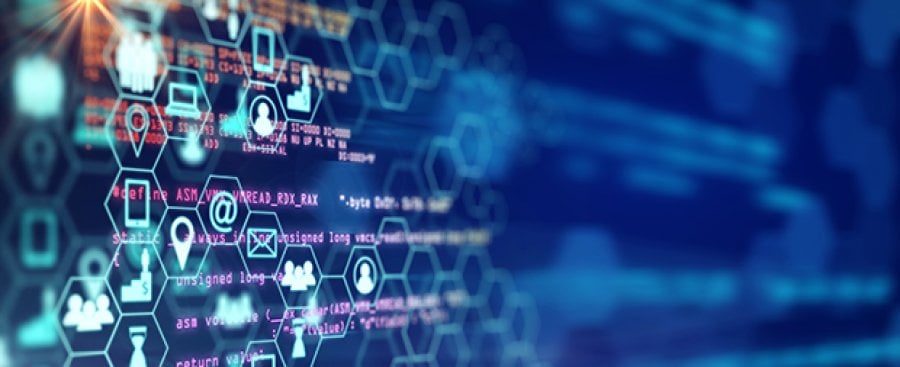Why study Health Data Science?
13 May 2021 London School of Hygiene & Tropical Medicine London School of Hygiene & Tropical Medicine https://lshtm.ac.uk/themes/custom/lshtm/images/lshtm-logo-black.png
Why study Health Data Science?
|
Big data and artificial intelligence are emerging technologies which are driving advances in all aspects of life, including the healthcare sector. With growing demand for health data scientists, we caught up with MSc Health Data Science Programme Director, Melanie Smuk, to find out how the field is transforming health and health systems around the world. |
What is health data science?
Put simply, health data science is an exciting interdisciplinary field which is using data, methodology and tools to improve global health. It draws strength from mathematics, statistics, epidemiology and informatics to make advances in health care. Health data science helps us better understand diseases and health conditions - it can focus on causes or symptoms as well as establishing how many people might be affected. The methods applied not only create new ways to identify people at the highest risk of illness, but can also formulate policies on the best ways to provide care and treatment.
What does a health data scientist do?
Health data scientists pull together a large variety of technical skills such as statistics, data visualisation and machine learning. Proficiency with programming languages such as Python, SQL and R helps scientists to explore healthcare data.
How has the field of health data science impacted health and health systems?
Ever-increasing amounts of data, coupled with fast-paced computer power breakthroughs, make health data science an exciting field which has made huge impacts on health and healthcare systems. Data science plays a key role in wearable products which monitor and prevent health issues. These products can also help create preventive medicine programmes aimed at changing peoples' lifestyles to reduce risk factors.
Health data science is also being utilised within improving diagnostic accuracy and efficiency, which can help save lives. Deep learning algorithms can read imaging data, analyse it and check results against extensive databases which can reduce a misdiagnosis.
It also plays a role in precision medicine and can be applied to create personalised treatments and informed care. Using data sources like Electronic Health Records (EHR), a data scientist can use vast amounts of information to identify patterns and create accurate patient profiles.
'As the amount of stored data in the world increases, having the ability to programme, handle and analyse large data sources is a key employable skill and hence the job market for health data scientists is growing hugely.'
What are the differences between health data science and related fields such as biostatistics and health informatics?
As the field of applied mathematics has expanded for the new needs and requirements of data and data analysis, new terms for the different areas of application have been created. While health data science, biostatistics and health informatics can all be seen as the children of mathematics and are closely aligned, their actual definitions are not well established.
Health data science refers to the analysis and engineering of the data in some way, using quantitative techniques to explore and give information from the data. Health informatics is sometimes seen as the application of the information from data science, less analytical but focused on its implementation within systems. Biostatistics is sometimes seen as looking at more experimental design, while data science has a great focus on programming and handling large datasets from continuously collected data sources.
As the amount of stored data in the world increases, having the ability to programme, handle and analyse large data sources, is a key employable skill and hence the job market for health data scientist is growing hugely.
How does the MSc Health Data Science programme prepare students for work in industry?
MSc Health Data Science at LSHTM is supported by Health Data Research UK (HDR UK) and not only prepares students to continue in academia if they wish, but also gives extremely employable skills for industry. We work closely with industry partners to mould the content of the programme and leave graduates with skills they will use in industry.
We are very grateful that our industry partners not only give enriching seminars which bring their expertise, research and methods to the programme, but also collaborate with us to support students’ dissertation projects. We see the collaboration between industry and these academic projects as a standout element compared to other similar programmes. Our students will leave the programme with knowledge and experience on how to successfully collaborate in research teams within industry. They will have exposure to real examples of how health data science is being implemented to improve health and already start contributing to the field, even before they graduate.
Why is LSHTM a good institution to study Health Data Science?
Students, academics and professionals come to LSHTM from all over the world because of its international presence, collaborative ethos, research excellence and prestigious study programmes. MSc Health Data Science works to the same ethos of the School - to improve global health. Our close connections with industry partners from around the world, coupled with the international expertise of our staff, results in a programme that is not only interesting but will give key employable skills. Students joining the programme are given the opportunity to impact health care even before they graduate through their dissertation projects. If you are looking to study at a prestigious institution with a focus on creating world-leading health data scientists, then LSHTM is the place to join.
- Discover MSc Health Data Science
